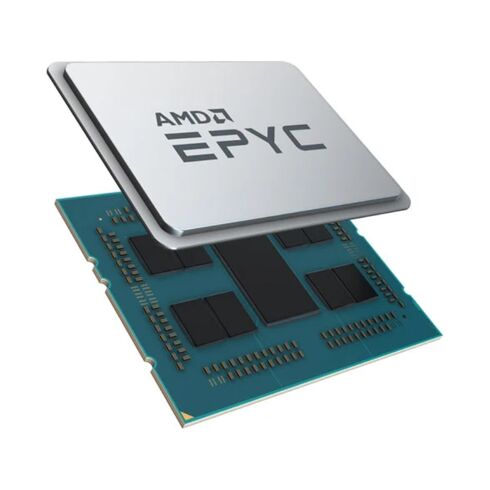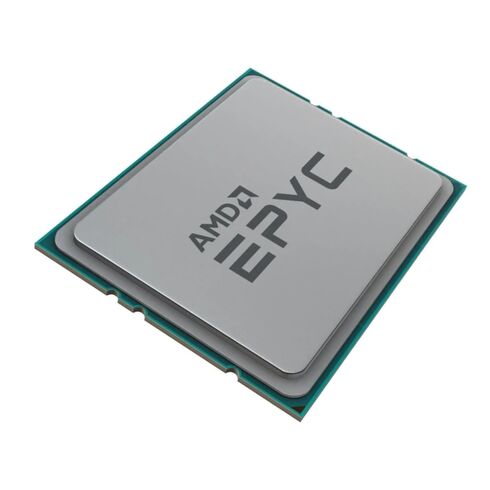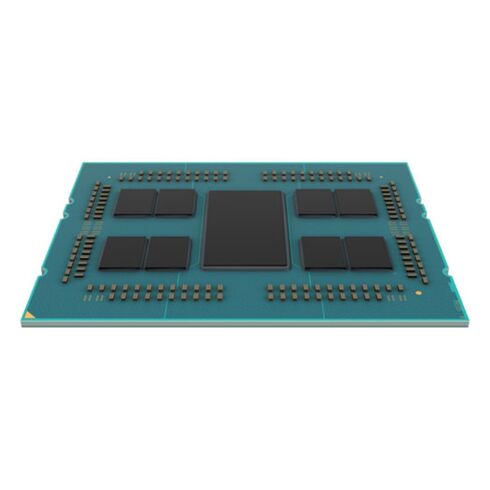WPWDW Dell EPYC 3.7GHz CPU, 256mb L3 Cache, Socket Sp3, 7nm Technology
- — Free Ground Shipping
- — Min. 6-month Replacement Warranty
- — Genuine/Authentic Products
- — Easy Return and Exchange
- — Different Payment Methods
- — Best Price
- — We Guarantee Price Matching
- — Tax-Exempt Facilities
- — 24/7 Live Chat, Phone Support
- — Visa, MasterCard, Discover, and Amex
- — JCB, Diners Club, UnionPay
- — PayPal, ACH/Bank Transfer (11% Off)
- — Apple Pay, Amazon Pay, Google Pay
- — Buy Now, Pay Later - Affirm, Afterpay
- — GOV/EDU/Institutions PO's Accepted
- — Invoices
- — Deliver Anywhere
- — Express Delivery in the USA and Worldwide
- — Ship to -APO -FPO
- — For USA - Free Ground Shipping
- — Worldwide - from $30
Clock Speed: 3.7GHz
Enhanced Performance
The Dell EPYC CPU is equipped with an impressive clock speed of 3.7GHz. This high clock speed allows for enhanced performance and faster execution of tasks. Whether you are running complex simulations, rendering high-resolution graphics, or multitasking with resource-intensive applications, the 3.7GHz clock speed ensures smooth and seamless performance.
Product Overview
- Type: Server Processor
- Manufacturer: DELL
- Model Number: Epyc 72f3
- Manufacturer Part Number: WPWDW
Technical Specifications
- Core Configuration: 8 cores
- Base Clock Speed: 3.7 GHz
- Maximum Boost Clock: Up to 4.1 GHz
Cache Memory Details
- L3 Cache: 256 MB
Additional Technical Details
- Process Technology: 7 nm
- Maximum Thermal Design Power (TDP): 180 W
- Compatible Socket Type: SP3
Improved Responsiveness
The higher clock speed of the Dell EPYC CPU translates to improved responsiveness in everyday computing tasks. From opening applications to browsing the web and switching between multiple tabs, you will experience minimal lag and delays. The 3.7GHz clock speed ensures that your system can handle demanding workloads effortlessly, providing a seamless user experience.
Efficient Multithreading
Multithreading is becoming increasingly important in modern computing environments. With the 3.7GHz clock speed, the Dell EPYC CPU excels in multitasking scenarios. Each core can handle multiple threads simultaneously, allowing for efficient parallel processing. This means you can run multiple applications or perform computationally intensive tasks without experiencing a significant drop in performance.
Gaming Performance
For gaming enthusiasts, the 3.7GHz clock speed of the Dell EPYC CPU delivers exceptional gaming performance. With faster clock cycles, your games will run smoother, providing a more immersive and enjoyable gaming experience. Whether you are playing graphically intensive games or engaging in online multiplayer battles, the high clock speed ensures that you won't miss a beat.
Cache: 256MB L3
Faster Data Access
The Dell EPYC CPU features a substantial 256MB L3 cache, which plays a crucial role in improving data access speed. The cache acts as a temporary storage area that stores frequently accessed data, enabling the processor to retrieve it quickly without accessing the main memory. With a larger cache size, more data can be stored closer to the CPU cores, resulting in faster access times.
Reduced Latency
The large 256MB L3 cache significantly reduces latency in data retrieval. When the CPU needs to access data, it first checks the cache. If the required data is present in the cache, it can be retrieved almost instantly. This reduces the time wasted waiting for data to be fetched from the main memory, resulting in quicker execution of tasks and improved overall system performance.
Improved Workstation Performance
The generous 256MB L3 cache of the Dell EPYC CPU is particularly beneficial for users engaged in tasks that involve large datasets or complex calculations. Whether you are working with massive databases, performing scientific simulations, or running advanced analytics software, the large cache size ensures that relevant data is readily available to the CPU, eliminating bottlenecks and improving workstation performance.
Seamless Virtualization
Virtualization is a fundamental technology used by many businesses and individuals. The 256MB L3 cache of the Dell EPYC CPU enhances virtualization performance by allowing for better management and allocation of resources. Virtual machines running on your system can benefit from faster access to cached data, resulting in smoother operation and improved resource utilization.
Socket: SP3
Scalability and Compatibility
The Dell EPYC CPU utilizes the SP3 socket, offering excellent scalability and compatibility with compatible motherboards. The SP3 socket is designed to accommodate high-performance processors, making it an ideal choice for users who require powerful computing capabilities. With the SP3 socket, you have the flexibility to upgrade your system with future EPYC CPUs without the need for a motherboard replacement.
Support for High-Core Count CPUs
The SP3 socket supports EPYC CPUs with a high core count, allowing for more simultaneous processing power. This is particularly advantageous in tasks that require parallel computing, such as data analysis, simulations, and content creation. The SP3 socket's support for high-core count CPUs ensures that you can maximize your system's performance and handle demanding workloads efficiently.
Enhanced I/O Capabilities
The SP3 socket also provides enhanced I/O capabilities, allowing for better connectivity and data transfer speeds. With more lanes dedicated to PCIe devices, you can connect multiple high-speed peripherals such as graphics cards, storage devices, network adapters, and more. The SP3 socket's robust I/O capabilities enable you to build a versatile and highly connected system that meets your specific requirements.
Reliable and Secure Connection
The SP3 socket offers a reliable and secure connection between the CPU and the motherboard. Its robust design ensures a stable connection, minimizing the risk of data corruption or performance issues. Whether you are running critical applications or handling sensitive data, the SP3 socket provides the peace of mind that your system will operate reliably and securely.
Technology: 7nm
Improved Power Efficiency
The Dell EPYC CPU utilizes cutting-edge 7nm technology, which brings significant improvements in power efficiency compared to previous generations. The smaller transistor size allows for reduced power consumption without sacrificing performance. With the 7nm technology, you can enjoy powerful computing capabilities while minimizing energy consumption and reducing your environmental footprint.
Optimized Performance per Watt
The 7nm technology employed in the Dell EPYC CPU ensures optimized performance per watt. This means that you can achieve higher performance levels while consuming less power, resulting in cost savings and reduced heat generation. Whether you are running resource-intensive applications or operating a server farm, the 7nm technology offers an optimal balance between performance and energy efficiency.
Improved Thermal Management
The smaller transistor size of the 7nm technology allows for improved thermal management. Heat dissipation is more efficient, reducing the risk of overheating and thermal throttling. This ensures that your system can maintain optimal performance even under heavy workloads. With the 7nm technology, you can trust that your Dell EPYC CPU will deliver reliable and consistent performance, even in demanding environments.
Future-Proofing
The adoption of 7nm technology ensures that the Dell EPYC CPU is future-proofed for upcoming advancements in computing. As technology continues to evolve, smaller transistor sizes enable higher transistor densities and increased performance capabilities. By choosing a CPU with 7nm technology, you are investing in a processor that can keep up with future software requirements and technological advancements, providing longevity to your system.













